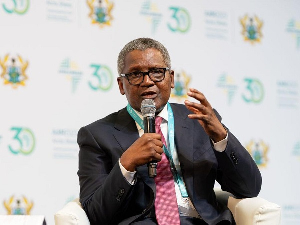Dr. Mohammed Ibn Chambas, the immediate past Head of the United Nations Office for West Africa and the Sahel (UNOWAS), has described as ironic the ideology of opposition parties to always seem to have the blueprints on how to run a country and all other issues about a country’s administration until the power gets into their hands.
He bemoaned how when such opposition parties come into political power, no longer find the very ideas they trumpeted so well out of power, any more relevant, contributing to the reasons the country is still unable to fully progress.
“There seems to be an admission that we need to do something about it but the mechanics of doing something about it just seems to be what is lacking.
“When each of the parties is in opposition, they tend to advocate more for dealing with this winner takes all, but then when they come into government, the appetite weakens a bit” along with “the urge to bring about the necessary reforms,” he explained, reports myjoyonline.com.
Dr, Mohammed Ibn Chambas further said that there is the need for multiparty systems to exist in the country regardless of the partisan ideologies of the different political parties that exist in the country.
He stressed that this is essential to the enhancement and growth of the democratic political practice in the country.
“It serves well, it allows for debate, contrasting and opposing views out of which good ideas can come out of,” he stressed.
Dr. Mohammed Ibn Chambas also advised that being the country Ghana is in making giant strides internationally, the country should be moving past some actions and inactions that hinder progress.
“Given where we are, still 60 plus years after independence, sometimes there is this desire to see the country move and it seems that oftentimes just when we seem that we are about to take off, then we seem to slip again,” he lamented.
He added that, “Looking globally, there are probably other systems of governance, democratic modules based on multi-partyism…where perhaps broader spectrums or views can be taken on board. Inclusiveness in governance can also be effective and evident.”
General News of Thursday, 29 April 2021
Source: www.ghanaweb.com













